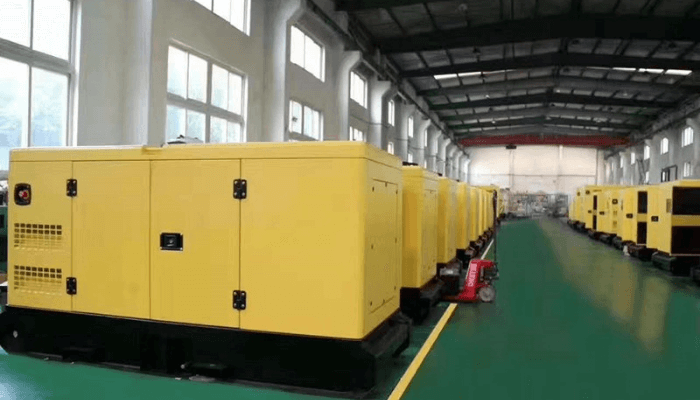The Nigerian diesel generator set (genset) market value has been projected to reach $806.8 million by 2030, a market report released by India-based P&S Intelligence said on Monday.
Forecasts by P&S Intelligence stated that Nigeria’s diesel genset market value, which is expected to be $445.1 million in 2021, will grow at a 6.8 percent Compound Annual Growth Rate (CAGR) between 2021 and 2030, reaching $806.8 million by 2030.
The intelligence publication added that generators with a power range of 15 kilovolt-amperes (kVA) to 75 kVA are extremely popular in residential facilities, telecom towers, small industries, restaurants, hotels, and commercial complexes.
“Apart from these locations, diesel generators are widely used in Nigeria’s oil and gas industry. Because most oilfields are remote, they lack a grid connection, making gensets necessary to keep operations running,” It added.
According to the report, Nigeria, one of the world’s largest crude oil producers, is dominated by commercial applications, owing largely to the continuous operation of gensets in oilfields, as commercial spaces in the country generally use high-power gensets for continuous operations due to the country’s poor grid infrastructure.
The poor grid infrastructure is the biggest reason that makes gensets important, according to P&S Intelligence.
While highlighting the reasons for the high consumption of genset, the report stated, “One of the biggest factors encouraging residential, commercial, and industrial users to buy gensets is the decreasing prices of low-power variants”.
Genset is the combination of a generator and an engine. The engine powers the generator, which in turn powers other equipment.
Some key companies in the Nigerian diesel genset market include; JMG Limited, Mikano International itLimed, Denyo Co. Ltd., Honda Manufacturing (Nigeria) Limited, General Electric Company, among others.
The P & S Intelligence report added, “This is itself because of the regulations imposed by the Nigerian government to curb the import of these machines and produce them locally instead”.
“With the rapid industrialization and population growth, the amount of power being generated in the country is becoming increasingly inadequate. Moreover, the large transmission losses make the situation worse, thereby driving the demand for diesel gensets,” the report stated.
Meanwhile, following the declaration made by President Muhammadu Buhari at the recently concluded Conference of Parties (COP26) which happened in Glasgow, where he pledged the country will meet net-zero emission by 2060, the government has put stringent regulations in place to check greenhouses gasses (GHG) emissions from diesel machines and initiated policies to promote cleaner fuels, such as natural gas.
With this in mind, the emission of greenhouse gasses has been seen as one of the major factors which will have a negative impact on the Nigerian diesel genset market growth.
In accordance with this, some key findings by the report have also identified that the major factors driving the demand for gas genset include but are not limited to growing construction and oil and gas sectors, increasing air pollution levels.
“The growing construction and oil and gas sectors are a key reason for the rising demand for gas gensets. Construction sites, even those that are located in cities, often lack a grid connection, while most oil fields are located at remote places. Therefore, both these sectors require an alternate source of electricity for keeping the machines and operations running nonstop.
“The increasing air pollution levels are another key factor behind the high sale of gas gensets in Nigeria. Although gas gensets do emit greenhouse gasses (GHGs), the emissions are a lot lower than those of diesel gensets.
“Thus, with the implementation of strict emission regulations on diesel engines, people in the country are turning to gas gensets, which are, additionally, cheaper to operate because of their high fuel efficiency,” the report indicated.”
P&S Intelligence is a provider of market research and consulting services catering to the market information needs of increasing industries across the world.





